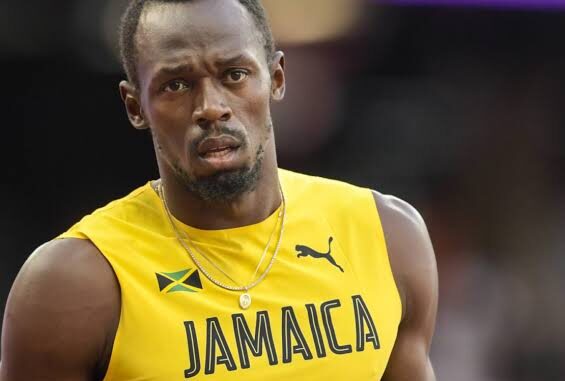
Usain Bolt Exposes Negative Side of Fame as Jamaican Track and Field Legend Opens Up on Daily Hardships…
Kingston, Jamaica – Sprinting icon Usain Bolt, widely celebrated as the fastest man in history, is opening up about the lesser-known toll fame has taken on his life, shedding light on the daily challenges he faces off the track.
In a recent interview, the eight-time Olympic gold medalist revealed that while his achievements have brought global recognition and immense pride to Jamaica, they’ve also come at a personal cost. Bolt, known for his charisma and signature lightning pose, shared a more vulnerable side of himself, discussing how fame has affected his freedom, mental health, and sense of normalcy.
“People think being famous means you have it all, but there’s a side they don’t see,” Bolt said. “I can’t go anywhere without being stopped. There’s no such thing as privacy anymore.”
Bolt described how simple daily activities—like going to the grocery store, dining at a restaurant, or taking a walk—often turn into public spectacles. The constant attention, he noted, makes it difficult to maintain a low profile or relax in public spaces. Despite his gratitude for the love and admiration he receives, he emphasized that the lack of anonymity has made life more stressful than many assume.
The 37-year-old also opened up about the emotional burden that comes with being a national icon. “In Jamaica, people look up to me, and that’s an honor. But it also means you can’t make mistakes. You have to live a perfect life, and that’s not real,” he said.
Bolt’s comments come amid increasing global conversations about the mental health of athletes. Over the past few years, several high-profile sports figures—including Simone Biles and Naomi Osaka—have spoken candidly about the pressures of fame and performance. Bolt’s decision to speak out adds a powerful voice to that narrative, particularly in the Caribbean, where mental health discussions often carry stigma.
The sprint legend also touched on financial challenges following a recent scandal in which millions of dollars were reportedly stolen from his investment account. While Bolt did not go into detail, he acknowledged that the incident was a harsh reminder that even the most successful public figures are vulnerable to exploitation.
“Fame doesn’t protect you from being taken advantage of. In fact, sometimes it makes you more of a target,” he said.
Despite the hardships, Bolt remains committed to inspiring the next generation of athletes. He continues to support youth sports programs in Jamaica and has expressed interest in using his platform to advocate for better mental health resources for athletes.
“Being open about my struggles doesn’t mean I’m weak. It means I’m human,” he said.
Usain Bolt’s story serves as a reminder that behind the medals, world records, and global adoration lies a man who, like anyone else, faces trials and uncertainties. His willingness to speak openly may pave the way for more honest conversations about the realities of fame and the importance of emotional well-being in the world of sports.



Be the first to comment